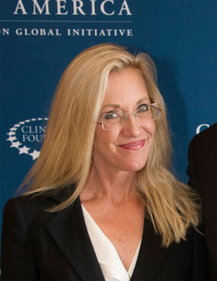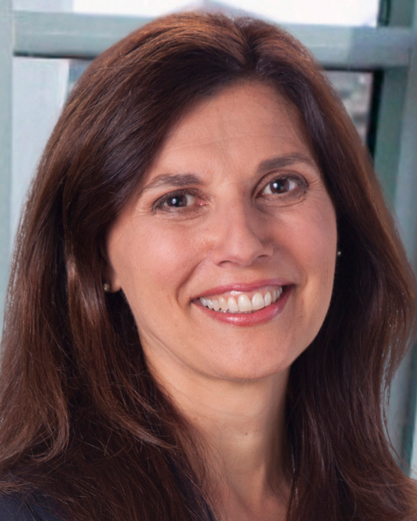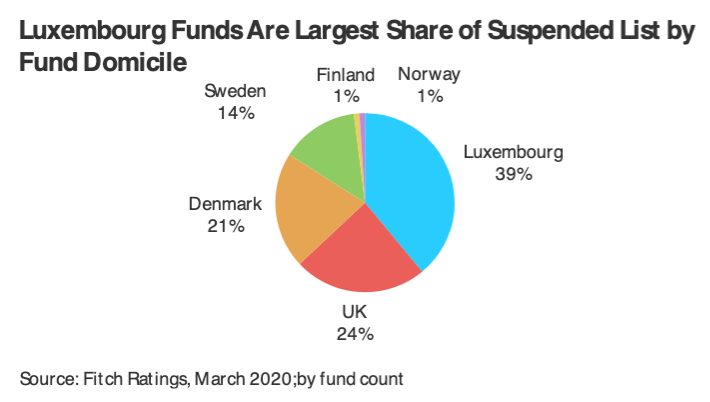|
Your 5-Point Stress-Free Money Plan. A conversation with Charles Schwab’s SVP and Chief Fixed Income Strategist Kathy A. Jones. The S&P500 just hit a new record high. Investors have heaved a sigh of relief. However, memories of March and the 35% losses in the Dow Jones Industrial Average still haunt us. The White House boasts of job creation and the stock rally, downplaying the unfavorable data, like the 2Q 2020 GDP contraction of -32.9%, the 10.2% unemployment rate, financial leverage, high price/earnings ratios, junk bonds and the 28 million people who are claiming unemployment benefits. These statistics affect all of our lives. Rather than hope and pray that the storm is over, now is a great time to build a solid financial house. Adopt a strategy that affords you the cash you might need in an emergency, and prevents your retirement from evanescing if stocks turn south. To assist you with your blueprint, I reached out to Kathy A. Jones for her inside perspective and wisdom. Kathy Jones is the Chief Fixed Income Strategist and SVP for Charles Schwab. In a candid and informative conversation, Kathy outlines key strategies each one of us can and should adopt now. Your 5-Point Stress-Free Money Plan.
Below is an excerpt of my conversation with Kathy Jones. You can watch the complete interview with Kathy A. Jones on my channel at YouTube.com/NataliePace. Natalie Pace: 2Q 2020 saw the worst economic GDP contraction in recorded history (since at least 1974), at -32.9%. In February and March, the financial markets had frozen up. Even Treasury bills were illiquid. The Federal Reserve Board printed over $3 trillion to prevent a complete financial meltdown, and pushed the public debt up to $26.6 trillion in the bargain. What’s safe in that environment? KAJ: U.S. treasuries are safe. If you hold them to maturity, you’ll get your principal back. I don’t think the U.S. government is going to default on that. NP: The yield on Treasury bills is so low. Who wants to get locked into 1% yield or less, when that barely covers the expenses in many funds? Also, in March, even Treasury bills were illiquid. KAJ: You could see depreciation in [treasuries] between the time you invest and the time they mature. One thing to do is to shorten the maturity or the duration. The longer the term, the more the risk of rates rising and seeing a price decline. With short term, you still have that safety and liquidity, but you’re not taking interest rate risk. NP: Do you think there is a risk of downgrades in the municipal bond space? States and cities have been hit hard with pandemic-related expenses and a massive drop in tax income. KAJ: We do think there is risk of downgrades. I’m worried about the state and local governments. They’re under a tremendous amount of stress from the pandemic. They’re losing tax revenue. They bear a lot of the brunt of the cost of this recovery, particularly with firefighters and hospitals. We suggest that investors focus on the higher-rated bonds, both in corporate and municipal bonds. NP: Most people are not aware of the leverage in the corporate space. More than half of the S&P500 is rated at speculative (junk) or just one downgrade away from junk. Do investors have to look more closely at their corporate bond funds and holdings? KAJ: In the corporate bond market, you want to stay in the A-rated space. Maybe a few BBBs, but you don’t want to get too committed to that space because if they get downgraded they end up in the junk bond space. When a bond gets downgraded, the price will gap down. There is a potential for the company to cascade into a default. Make sure there is not too much debt to repay, and that they are not a business that is really harmed by the pandemic, like tourism or retail. Industries that have been hurt by the pandemic are at risk of a downgrade. NP: What happens in a downgrade? KAJ: Things go down a lot faster than they go up. Know what you own. You want to understand what the dynamics and risks are. Liquidity can disappear really quickly. If you can’t sell your bond at a reasonable price in a reasonable amount of time if you need the money, that can put you in a bad place. NP: There’s a Wall Street aphorism: “Never reach for yield.” How relevant is this today? KAJ: I’m seeing suggestions that people should veer out of Treasuries and other safe, liquid assets and go into higher yielding assets. That’s not a terrible idea, except that most of those assets don’t have the liquidity that safe assets do. If you tie your money up in private equities or other alternative investments, you may have trouble getting that money out when you need it. NP: The Federal Reserve Board has been purchasing bonds and even junk bond ETFs, leading those to trade back near the highs they were at in February, before the pandemic. Do investors need to be more cautious with these speculative issues? KAJ: The market is acting like they are safer than they are. The Feds intended to make sure that the junk bond market had liquidity. It had frozen up. However, we can still see bankruptcies and defaults in there. Know what you own. Be careful. As long as the music keeps playing, people want to keep dancing. You don’t want to be the one left on the dance floor when the music stops. NP: In a recent blog, you talked about how a weaker dollar might benefit emerging market bonds. Please talk a little about that. KAJ: The dollar is poised to move a bit lower from here. That is typically good for emerging market bonds. They are quite volatile, and there are a lot of countries that are still feeling the pain of the pandemic. If you’re willing to take the risk in an emerging market ETF that is broadly diversified, they should be at a point in the cycle where they start to benefit. Argentina, Turkey and South Africa are places where you might not want to be involved. Typically, a diversified ETF or managed fund will give you exposure to a broad range of countries, so that you are not susceptible to a loss in one or two bonds. NP: We’ve seen mutual fund redemption suspensions, mostly in European funds. Should investors be concerned that they will be locked out of access to their money? KAJ: The fund can build in different provisions in their legal documents. It’s one thing to watch for. It’s a very uncomfortable feeling when you can’t get your money when you want to. Sometimes it’s not the worst thing. People panic and sell into an illiquid market. The gates can prevent that from happening. NP: Is the U.S. at risk of a credit downgrade? KAJ: We’ve been put on notice by a couple of the rating agencies. We are running these big deficits. It’s one thing to run a deficit in a recession. However, there doesn’t seem to be the political will to deal with that or make a plan. The rating agencies are telling us that if we don’t come up with a plan or show some concern, they’re going to downgrade us. NP: It sounds like now is a good time to review your financial plan and make sure that you are safe, protected and properly diversified. KAJ: These are difficult times for people. Sit down and look at your portfolio. Ask yourself, “What made me uncomfortable in March? Do I want to change my allocation so that I’m more comfortable? Do I really understand how much risk I am taking on?” Have some cash on hand, so that you are covered if you get laid off or have a problem that needs to get addressed. Now is a great time to do this. The markets are doing better. Things are calming down. You can watch the complete interview with Kathy A. Jones on my channel at YouTube.com/NataliePace. Other Blogs of Interest China's Tesla (Nio). 2Q Sales Soar. Why Are You Still Renting? (Errr. There is More Than This to Consider!) MedMen's Turnaround Plan Attracts A-List Board Members. Wealth Myths That Keep You Poor. Prosperity Truths That Make You Rich. Protecting Your Wealth and Home in a Recession. Technology and Silver are Golden. The Economy Contracts 32.9% in the 2nd Quarter of 2020. Real Estate: Feeling Equity Rich? Make Sure That Feeling Isn't Fleeting. Airline Revenue Plunges 86%. 10 Questions for College Success Bank Earnings Season. Crimes. Cronyism. Speculation. Real Estate Solutions for a Post-Pandemic World. Copper and Chile Update. Gold Soars. Some Gold Funds Tank. Will the Facebook Ad Boycott De-FANG Stocks? Why Did My Cannabis Stock Go Down? Which Countries Are Hot in a Global Pandemic? Is Your Financial Advisor Good at Navigating Stormy Seas? $10 Avocados, Lies, Damn Lies, Statistics & Wall Street Secrets. It's Never a Crash. Work From Home and Intergenerational Housing. Biotech Races for a Coronavirus Cure. Are You Worried About Money? May is a Good Time for Rebalancing. Is FDIC-Insured Cash at Risk of a Bank Bail-in Plan? Why Did my Bonds Lose Money? Cannabis Update. Recession Proof Your Life. Free Videocon Monday, May 10, 2020. The Recession will be Announced on July 30, 2020. Apple Reports Terrible Earnings. We Are in a Recession. Unemployment, Rising Stocks. What's Going On? 8 Money Myths, Money Pits, Scams and Conspiracy Theories. 21st Century Solutions for Protecting Your Home, Nest Egg & Job. Wall Street Insiders are Selling Like There is No Tomorrow. Why Are My Bonds Losing Money? Tomorrow is Going to be Another Tough Day. Price Matters. Stock Prices are Still Too High. Should You Ride Things Out? 7 Recession Indicators Corona Virus Update. The Bank Bail-in Plan on Your Dime. NASDAQ is Up 6X. CoronaVirus: Which Companies and Countries Will be Most Impacted. Is Tesla Worth GM and Ford Combined. Artificial Intelligence is on Fire. Is it Time to Buy S'More? Take the Retirement Challenge. 2020 Investor IQ Test. Answers to the 2020 Investor IQ Test. The Cannabis Capital Crunch and Stock Meltdown. Does Your Commute Pollute More Than Planes? Are Health Care Costs Killing Your Budget? 2020 Crystal Ball. The Benefits of Living Green. Featuring H.R.H. The Prince of Wales' Twin Eco Communities. What Love, Time and Charity Have to do with our Commonwealth. Interview with MacArthur Genius Award Winner Kevin Murphy. Unicorns Yesterday. Fairy Tales Today. IPO Losses Top $100 Billion. Price Matters. Will There be a Santa Rally? It's Up to Apple. Harness Your Emotions for Successful Investing. What the Ford Downgrade Means for Main Street. The Dow Dropped Over 1000 Points Do We Talk Ourselves into Recessions? Interview with Nobel Prize Winning Economist Robert J. Shiller. Ford is Downgraded to Junk. Gold Mining ETFs Have Doubled. The Gold Bull Market Has Begun. The We Work IPO. The Highs and Hangovers of Investing in Cannabis. Recession Proof Your Life. What's Your Exit Strategy? It's Time To Do Your Annual Rebalancing. Are You Suffering From Buy High, Sell Low Mentality? Financial Engineering is Not Real Growth. The Zoom IPO. Uber vs. Lyft. Which IPO Will Drive Returns? Boeing Cuts 737 Production by 20%. The Lyft IPO Hits Wall Street. Should you tak Cannabis Doubles. Did you miss the party? 12 Investing Mistakes The High Cost of Free Advice. 2018 Was the Worst December Since the Great Depression. Russia Dumps Treasuries and Buys Gold OPEC and Russia Cut Oil Production. Important Disclaimers Please note: Natalie Pace does not act or operate like a broker. She reports on financial news, and is one of the most trusted sources of financial literacy, education and forensic analysis in the world. Natalie Pace educates and informs individual investors to give investors a competitive edge in their personal decision-making. Any publicly traded companies or funds mentioned by Natalie Pace are not intended to be buy or sell recommendations. ALWAYS do your research and consult an experienced, reputable financial professional before buying or selling any security, and consider your long-term goals and strategies. Investors should NOT be all in on any asset class or individual stocks. Your retirement plan should reflect a diversified strategy, which has been designed with the assistance of a financial professional who is familiar with your goals, risk tolerance, tax needs and more. The "trading" portion of your portfolio should be a very small part of your investment strategy, and the amount of money you invest into individual companies should never be greater than your experience, wisdom, knowledge and patience. Information has been obtained from sources believed to be reliable. However, NataliePace.com does not warrant its completeness or accuracy. Opinions constitute our judgment as of the date of this publication and are subject to change without notice. This material is not intended as an offer or solicitation for the purchase or sale of any financial instrument. Securities, financial instruments or strategies mentioned herein may not be suitable for all investors.  About Natalie Pace Natalie Wynne Pace is an Advocate for Sustainability, Financial Literacy & Women's Empowerment. She has been ranked as a No. 1 stock picker, above over 835 A-list pundits, by an independent tracking agency (TipsTraders). The ABCs of Money remained at or near the #1 Investing Basics e-book on Amazon for over 3 years (in its vertical), with over 120,000 downloads and a mean 5-star ranking. The 3rd edition of The ABCs of Money was released in 2020. Natalie Pace's easy as a pie chart nest egg strategies earned gains in the last two recessions and have outperformed the bull markets in between. That is why her Investor Educational Retreats, books and private coaching are enthusiastically recommended by Nobel Prize winning economist Gary S. Becker, TD AMERITRADE chairman Joe Moglia, Kay Koplovitz and many Main Street investors who have transformed their lives using her Thrive Budget and investing strategies. Click to view a video testimonial from Nilo Bolden. Comments are closed.
|
AuthorNatalie Pace is the co-creator of the Earth Gratitude Project and the author of The Power of 8 Billion: It's Up to Us, The ABCs of Money, The ABCs of Money for College, The Gratitude Game and Put Your Money Where Your Heart Is. She is a repeat guest & speaker on national news shows and stages. She has been ranked the No. 1 stock picker, above over 830 A-list pundits, by an independent tracking agency, and has been saving homes and nest eggs since 1999. Archives
July 2024
Categories |









 RSS Feed
RSS Feed